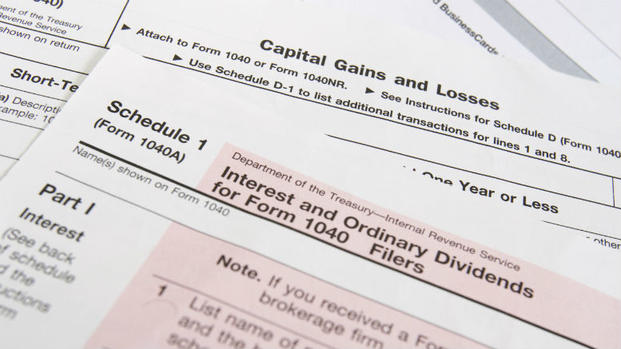In case you weren't paying attention to the news around Christmas, the Trump administration made major changes to the tax law. Of course, both sides were very vocal about whether the law is good or bad, and both sides probably were a little bit right and a little bit wrong.
Let's try to cut through all the noise and see what it means to the average military member and veteran.
What is the bottom line?
Under the new law, most people will see their taxes go down, how much your taxes go down depends on how much you earn, if you are married, how many kids you have, if you own a home, etc. I've done a few simple calculations to show potential savings:
- Single E-4, 3 years service: $340 savings
- Married E-5, 6 years service, with 2 kids: $1,350 savings
- Single O-2, 2 years service: $2,000 savings
- Married O-5, 10 years service, with 2 kids: $4,100 savings
- Married 50 year old veteran making $110K with 2 kids and a mortgage: $3,000 savings
- Single 50 year old veteran making $60K with a mortgage: $500 savings
- Married 65 year old veteran making $50K with a mortgage: $1,200 savings
So as you can see, most individuals will see rates go down, and those who make more money will see a bigger savings. Remember though, these tax cuts are scheduled to end in 7 years.
No more deductions for singles
The standard deduction has nearly doubled, so you may not need to itemize your taxes to get a bigger savings, however the personal exemption has been ended, this will cause some single people to end up getting less of a tax cut than married people.
Married couples get big benefits
Speaking of those who are married with children: they will likely see a big benefit out of this new tax law. The child tax credit will increase from $1,050 to $2,000 for children under 17 and there is a new $500 tax credit for qualifying dependents age 17 and older.
Pay attention to your state taxes
People who live in states with high income taxes will likely get the short end of the stick in this new law. You will now be limited to a $10,000 deduction on state, local, and property taxes. This means if you live in an expensive state and own a home you could end up paying a lot more in federal income tax this year.
Mortgage interest
If you buy a house worth $750K or more you may end up losing your tax deduction for mortgage interest too, but if you can afford that kind of place you probably have a tax adviser working their best to find ways to save you money.
If you are like many of us and refinanced an existing mortgage, or took out a home equity line of credit to pay bills or college expenses you will lose that tax deduction this year, that will hurt lots of people.
Miscellaneous changes
The Alternative Minimum Tax income limit goes up. This mainly affects people earning between $200 - $500K.
You can now use a 529 plan to pay for private grade schools and high schools. Previously this plan (which is a tax-free savings account) could only be used to pay for college.
The medical costs limit has been dropped from 10 percent to 7.5 percent. This means that your medical expenses have to be 7.5 percent of your adjusted gross income to be deducted from your taxes. So, if you earned $50K you would need to have medical expenses (not covered by insurance) over $3,500 to be able to claim it as a deduction. However, the limit goes back up to 10 percent next year.
So, the best tax advice I can give you is no tax advice. I'm no tax professional, and it takes me at least a week to do my own taxes online each year, and you can bet my wife knows not to come near me when I'm doing them.
If you want to save the most on your taxes and not get dangerous advice that could end up costing you in the long run, you should contact a professional who knows what they are doing.










